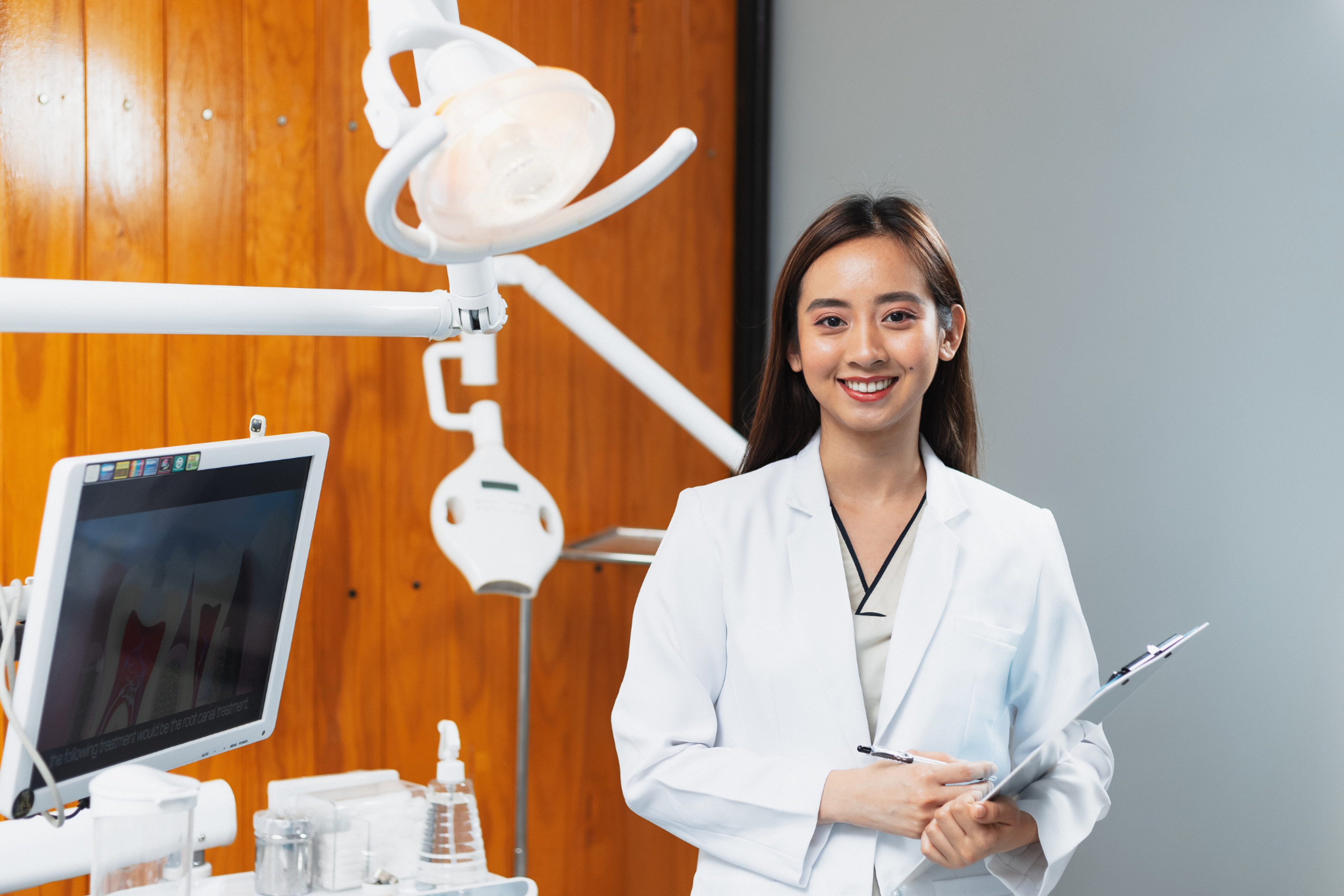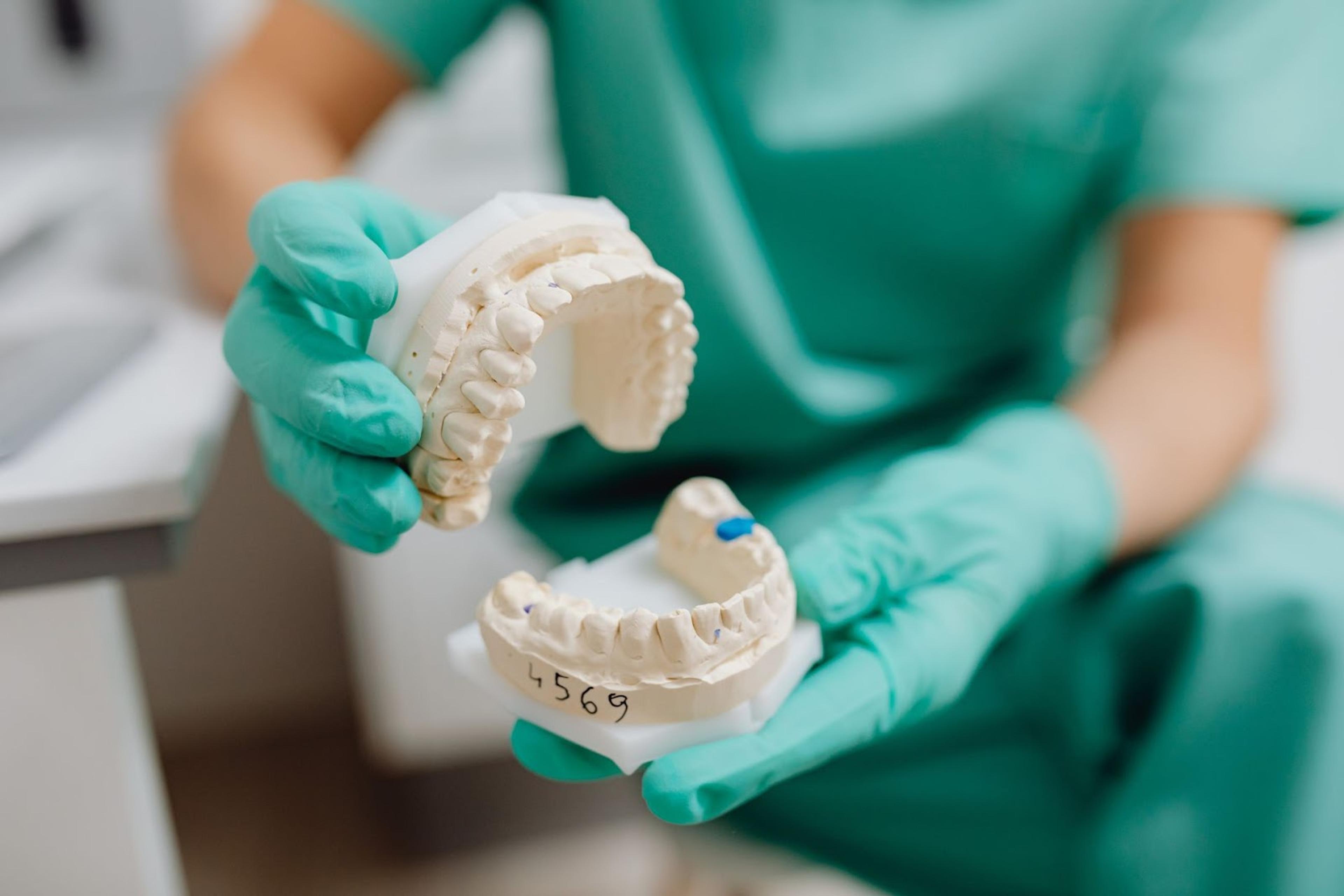What Can You Do With a DDS Degree?
Discover the endless possibilities of a DDS degree and explore the various career paths available to you.
Posted April 10, 2025

Table of Contents
A DDS degree, which stands for Doctor of Dental Surgery, provides graduates with a wide range of career choices and opportunities in the dental industry. From working as clinicians or researchers to becoming educators or administrators, DDS degree holders have the flexibility to choose from various career paths and excel in their chosen field. In this comprehensive guide, we will explore the career options and other aspects related to DDS degree programs.
Exploring the Career Options for DDS Degree Graduates
DDS degree holders can pursue a variety of career paths and specialties within the dental industry. Here are some common career options:
- Clinical Dentistry: Graduates can work as dentists in private practices, hospitals, community clinics, or government agencies. They can specialize in areas such as orthodontics, periodontics, endodontics, pediatric dentistry, and oral surgery.
- Research: Graduates can work in research institutions or universities to conduct research on dental diseases, dental materials, or developing new treatments and innovations in the field of dentistry.
- Educators: Graduates can pursue teaching careers as faculty members in dental schools or community colleges to train future dentists and dental assistants.
- Administration: Graduates can pursue careers in the dental industry as administrators, managing dental practices, or overseeing dental facilities and clinics.
- Public Health: Graduates can work in public health agencies or non-profit organizations, or government agencies to improve dental health and promote oral hygiene in different communities and populations.
The Benefits of Pursuing a DDS Degree Program
One of the main benefits of pursuing a DDS degree program is the high demand for dental professionals both now and in the future. According to the U.S Bureau of Labor Statistics, employment of dentists is projected to grow by 7% from 2020 to 2030, faster than the average for all occupations. Additionally, DDS programs provide students with hands-on clinical experience, opportunities for research and networking, and a comprehensive understanding of dental practices, materials, and procedures.
Essential Skills and Knowledge Required for DDS Degree Programs
DDS degree programs require a strong foundation in science, particularly in subjects such as anatomy, physiology, biochemistry, and microbiology. A good understanding of communication, interpersonal skills, and problem-solving skills is also essential, as dentistry involves working with patients and other dental professionals. Additionally, DDS students must demonstrate a high level of manual dexterity and attention to detail for clinical practices and procedures.
Furthermore, DDS students must also possess a strong ethical and professional foundation. They must understand the importance of patient confidentiality, informed consent, and maintaining a high level of integrity in their practice. DDS students must also be knowledgeable about the legal and regulatory aspects of dentistry, including licensure requirements and insurance billing practices. Finally, a commitment to lifelong learning and staying up-to-date with the latest advancements in dental technology and techniques is crucial for success in the field of dentistry.
How to Choose the Right DDS Degree Program for You
Choosing the right DDS program can be challenging, but there are some factors that prospective students should consider, such as:
- Location: Consider the location of the dental school and the cost of living in that area.
- Accreditation: Choose a program that is accredited by the Commission on Dental Accreditation.
- Specialties: Consider the program’s specialties and the availability of clinical or research experiences that match your interests and goals.
- Faculty: Look at the faculty's experience and expertise, as well as the student-teacher ratio and the availability of academic and career advising.
Another important factor to consider when choosing a DDS program is the curriculum. Look at the courses offered and the sequence in which they are taught. Consider whether the program offers opportunities for hands-on experience and clinical practice. Additionally, research the program's board pass rates and job placement rates to get an idea of the program's success in preparing students for their careers.
Understanding the Curriculum of a DDS Degree Program
A DDS program typically takes four years to complete, including both classroom instruction and clinical experiences. The curriculum usually covers topics such as dental anatomy, oral and maxillofacial surgery, endodontics, prosthodontics, and orthodontics, as well as courses in ethics, behavioral science, and practice management. During clinical experiences, students will work under the supervision of licensed dental professionals to gain hands-on experience in patient care and dental procedures.
Aside from the core courses, DDS programs may also offer elective courses that allow students to specialize in a particular area of dentistry. These elective courses may cover topics such as pediatric dentistry, geriatric dentistry, or cosmetic dentistry. Additionally, some DDS programs may require students to complete a research project or thesis as part of their degree requirements.
After completing a DDS program, graduates must pass a licensing exam in order to practice dentistry. Some states may also require additional exams or certifications for certain specialties within dentistry. Continuing education is also important for dentists to stay up-to-date with the latest advancements and techniques in the field.
Top-Rated DDS Degree Programs in the United States
Some of the top-rated DDS programs in the United States include:
- Harvard School of Dental Medicine
- University of California, San Francisco School of Dentistry
- University of Pennsylvania School of Dental Medicine
- University of Michigan School of Dentistry
- University of North Carolina at Chapel Hill School of Dentistry
When choosing a DDS program, it's important to consider factors such as location, cost, and curriculum. Some programs may have a stronger focus on research, while others may prioritize clinical experience. It's also important to research the faculty and their areas of expertise, as well as the opportunities for specialized training or residencies.
In addition to these top-rated programs, there are many other excellent DDS programs throughout the United States. Some notable programs include the University of Washington School of Dentistry, the University of Southern California Herman Ostrow School of Dentistry, and the University of Maryland School of Dentistry.
A Comprehensive Guide to Applying for a DDS Degree Program
Applying for a DDS degree program can be a lengthy process with several steps required:
- Research programs and create a list of potential schools.
- Take the Dental Admission Test (DAT), which measures knowledge and aptitude in areas such as science, comprehension, and perceptual ability.
- Request transcripts from all colleges or universities attended.
- Collect letters of recommendation from professors or dental professionals.
- Write a personal statement or essay highlighting your strengths, experiences, and reasons for pursuing a DDS program.
- Submit your application and supporting documents before the deadline.
Tips for Excelling in Your DDS Degree Program
To excel in a DDS program, students should:
- Attend lectures, labs, and clinical experiences regularly and actively participate in class.
- Develop good study habits, manage their time wisely, and stay organized.
- Collaborate with classmates and form study groups to enhance learning and understanding.
- Make use of resources such as academic and career advising, tutoring, and faculty office hours.
- Take advantage of extracurricular activities such as volunteering and research to gain additional experience and develop leadership skills.
The Future of Dental Industry and Career Opportunities for DDS Graduates
The dental industry is expected to grow in the coming years, with the increasing demand for dental services in aging populations and people seeking cosmetic dentistry treatments. DDS graduates have a variety of career opportunities in clinical practice, research, education, and administration, both in the private and public sectors. With the continuous advancement of technology and innovation in dental practices, the future of the dental industry looks promising.
Alternative Career Paths for DDS Graduates Outside of Clinical Dentistry
While many DDS graduates pursue careers in clinical dentistry, others choose non-clinical career paths outside of dentistry, such as:
- Pharmaceutical Sales Representatives
- Medical Science Liaisons
- Healthcare Consultants
- Healthcare Marketing and Public Relations Specialists
- Insurance Underwriters
Salary Expectations and Job Outlook for DDS Graduates in 2021 and Beyond
According to the U.S Bureau of Labor Statistics, the median annual wage for dentists was $164,010 in May 2020. The job outlook for dentists is projected to grow by 7% from 2020 to 2030, which is faster than the average for all occupations. The demand for dental services is expected to increase as the population ages and as research continues to link oral health to overall health.
Key Differences Between a DMD and DDS Degree Programs
While both degrees lead to the same career options within the dental industry, there are some differences between DDS and DMD degree programs. DDS stands for Doctor of Dental Surgery, while DMD stands for Doctor of Dental Medicine. The main difference lies in the nomenclature; otherwise, the curriculum and the nature of the degrees are similar.
In conclusion, a DDS degree provides students with an abundance of career options and opportunities in the dental industry, making it a desirable and rewarding profession for those interested in oral health and technology. By choosing the right program, developing necessary skills and knowledge, and excelling in clinical and academic settings, graduates will be well prepared for a successful career in dentistry.











